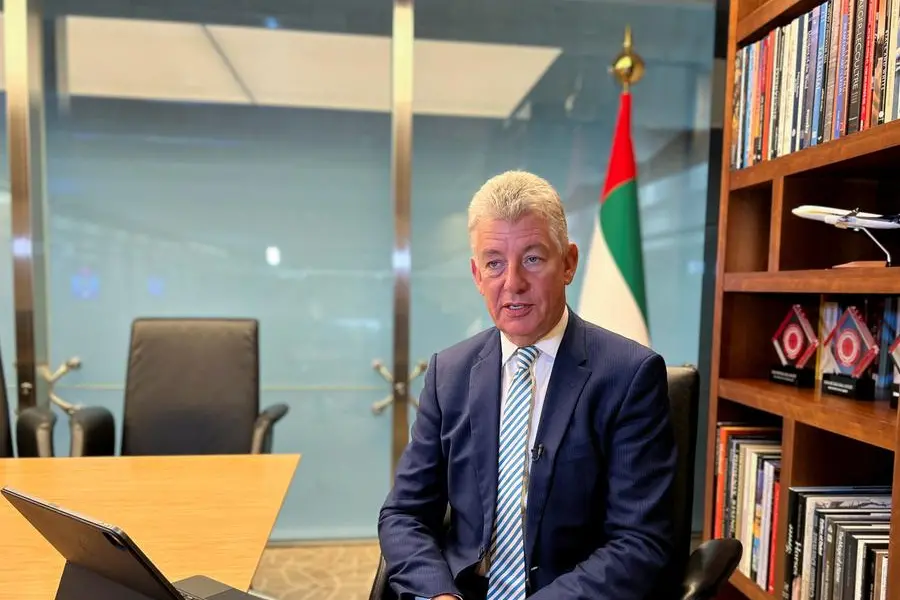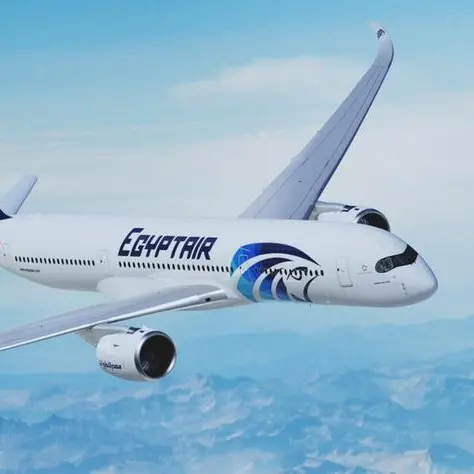PHOTO
Eco-friendly pods ferrying passengers from their homes to the aircraft gate; curb-side check-ins that cut out long queues at the airport. These are some of the ideas shared by Dubai Airports CEO Paul Griffiths as he spoke about the airport of the future at the Dubai Airshow, one that the emirate could possibly have in a few short years.
“Imagine sitting in a comfortable train as it takes you closer to your gate, without the need to walk long distances, and leaving you with plenty of time to shop and eat,” said Griffiths. “This is the idea we are fostering, to see Al Maktoum International feature a series of self-contained but connected concourses that eliminate those long walks. We don’t see the need for a mega terminal in the future if we have the technology right.”
Griffiths’ vision for a more “intimate experience” comes at a time when Dubai Airports is forging ahead with plans to replace Dubai International (DXB) – the world's busiest airport – with an even bigger location at Al Maktoum International, according to an AFP report. Ahead of the airshow announcement, the authority also released its annual forecast, which is expected to hit 86.8 million passengers by year-end at Dubai International, with Griffiths saying in the past that 120 million passengers was the total capacity of the current structure before it was time to move to something bigger.
News of Al Maktoum International’s construction isn’t surprising. In June, multiple media reports stated Dubai was contemplating the revival of the airport expansion of its new airport, also known as Dubai World Central (DWC). The project, which initially began in June 2010 for cargo operations and expanded to include passengers in October 2013, was estimated to cost AED 120 billion ($33 billion), with the goal of the airport is to become the world’s largest airport by 2050 and have the capacity to accommodate up to 255 million passengers each year.
According to Griffiths, the adoption of the right technology and sustainable practices would lay the foundation of a new central travel hub that could rival all others in the region, perhaps even the world.
“Other [airport] hubs compete with us for transfer traffic, like Abu Dhabi or Istanbul. We need to give people a reason to choose Dubai,” he said.
“Airports have forgotten what business they are in. We are like hotels, and we need to create a good, emotional feeling to travel through one, and that simply isn’t the case anymore,” an aviation veteran said.
Reinvention is key, he said. “We need to perhaps get Google or Apple onboard to change the mindset on how we plan an airport. Even today, we are building systems from technology from the 1960s. We should be sweeping legacy processes aside and starting afresh.”
The right technology, he added, will “eliminate the check-in and departure process through immigration.”
“Ideally, in the future, you wouldn’t have to check-in at all. It should be all about dropping the bag and getting on a place. If you are premium passenger with a limo service at your disposal, then the limo should do the check-in process for you. Ideally that’s what we want to do, create a seamless transition between land and air.”
Griffiths is also serious about achieving such a technology-led transition with sustainability at its heart.
“If you follow a vision of integrated services from airport to people, then it can run on clean energy. In the UAE we are welded to our cars. We will have to change that psyche but it can be done,” he says. “It has to be embedded in the mind of the consumers that sustainability is a necessity. It is the matter of the extinction of the human race. Governments have to mandate it to dive this agenda and the industries have to invest in it. We need to embed cost of sustainability in every good and service we consume,” he added.
Griffiths also appeared confident that Dubai Airports was ready to embrace such a vision. “It won’t take us 20 years. We are in a fortunate position than most. Even today, we can convert all our vehicles on the ground to clean energy ones. We have rooftop solar-powered PV capacity. Dubai Airports can get to carbon neutral in single digit years.”
According to him, sustainability needs to be as important as aviation safety, and if this transition is an expensive then it’s a cost that will need to be shared.
“If consumers have to pay more then it’s a cost that I would accept with a clear conscience. If the cost of travel needs to go up, then it’s a cost we need to undertake,” he said, adding that he didn’t think the green transition would cost more than the natural rate of inflation, but “it’s a premium worth paying.”
(Reporting by Bindu Rai, editing by Daniel Luiz)





















